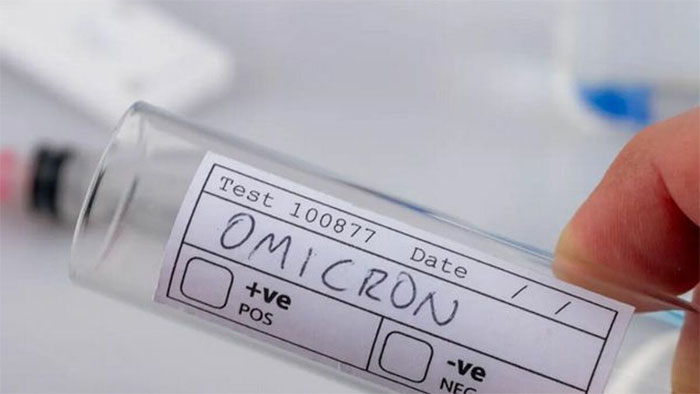Molecular diagnostic technology has been developed to specifically react to nucleic acids only when the RNA of the SARS-CoV-2 virus is present, allowing for the rapid detection of the Omicron variant within 20-30 minutes.
Scientists from Pohang University of Science and Technology (POSTECH) in South Korea have developed a molecular diagnostic technology that can detect the Omicron variant of the SARS-CoV-2 virus in just 20-30 minutes.
According to the research team led by Professor Lee Jung-wook from the Department of Chemical Engineering, this molecular diagnostic technology can differentiate mutations at the nucleotide base (the units containing nitrogen in nucleotides), enabling the detection of the Omicron variant, which is difficult to identify using traditional PCR testing methods.

New technology enables rapid detection of the Omicron variant within 20-30 minutes. (Illustrative image: Alamy Live News)
Currently, the Korea Centers for Disease Control and Prevention (KCDC) is using three testing methods to detect variants of the SARS-CoV-2 virus, including gene analysis, DNA analysis (for mutations like spike proteins), and PCR testing.
The current PCR testing method can detect the Delta variant but fails to identify Omicron.
This newly developed technology is not a method for sequencing genes or DNA; rather, it is a molecular diagnostic method.
The existing testing technology only “scans” specific regions of the virus, while the molecular diagnostic technology has been developed to react specifically to nucleic acids when the RNA of the SARS-CoV-2 virus is present, thus allowing for rapid variant detection.
According to Professor Lee Jung-wook, in PCR testing, the Omicron variant shows clear signs in the N gene but weak signals in the S gene.
In cases of Omicron infection, both the N and S genes confirm positive results, making it challenging to differentiate from other variants.
The molecular diagnostic technology operates on a different mechanism than PCR testing, allowing for effective detection of the Omicron variant.
Conventional testing technology can generally handle 96 samples per testing device, whereas this new technology can process over 125 samples within 30 minutes.
Additionally, the new technology does not require specialized equipment, making it simple and easy to produce testing kits.
The production of diagnostic kits based on this new technology takes four days, enabling a quick response even if a new variant or virus emerges in the future.
According to Professor Lee Jung-wook, this new technology could be implemented in the second half of 2022 after undergoing clinical trials.


















































